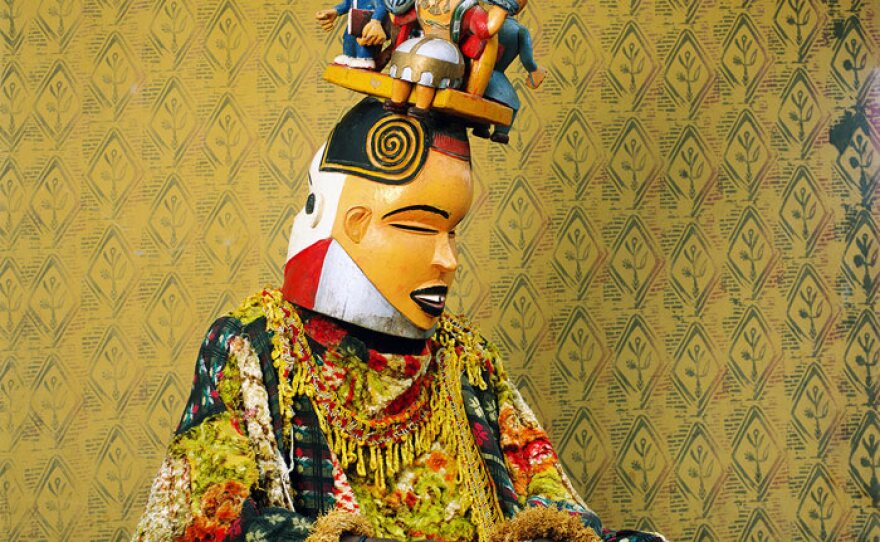When people don masks and costumes in the United States, it is often for Halloween or to root for their favorite sports team. But in Africa and the Caribbean, masking carries a much deeper meaning.
Phyllis Galembo is a professor of photography at the State University of New York at Albany. She has traveled the world documenting such masking culture. Her stunning images are part of a new exhibit at NC State and Meredith College. "I first went to Nigeria in 1985 and the early work I did there had a lot to do with ritual costume and traditional religion," she says. Galembo traveled with her camera journeying from Nigeria to Brazil and from Haiti to Cuba. "And at the same time, weirdly enough, I was also collecting American Halloween masquerade costumes." As she looked at her photos from abroad, and the material she collected at home, Galembo decided to focus on the masquerade costume. "I am a very blessed person to have been able to have access to a lot of the things that I have worked on," she tells Frank Stasio.
Babalawo Ifaniyi Akintunde also joins the conversation. Akintunde is the founder and chief priest at the Temple of Light and Progress in Durham, NC. He says that masks do indeed have a deep spiritual meaning. "See in African culture, we always believe that when a baby is born, that's an ancestor returning. And so when one crosses back over, many times you'll have ancestral representations of a particular person, and/or a whole family clan. We understand that we as a person are a mass conglomeration of thousands and hundreds of years and thousands of people who have come together to make you who you are."
will be on exhibit through May 11, 2014.














